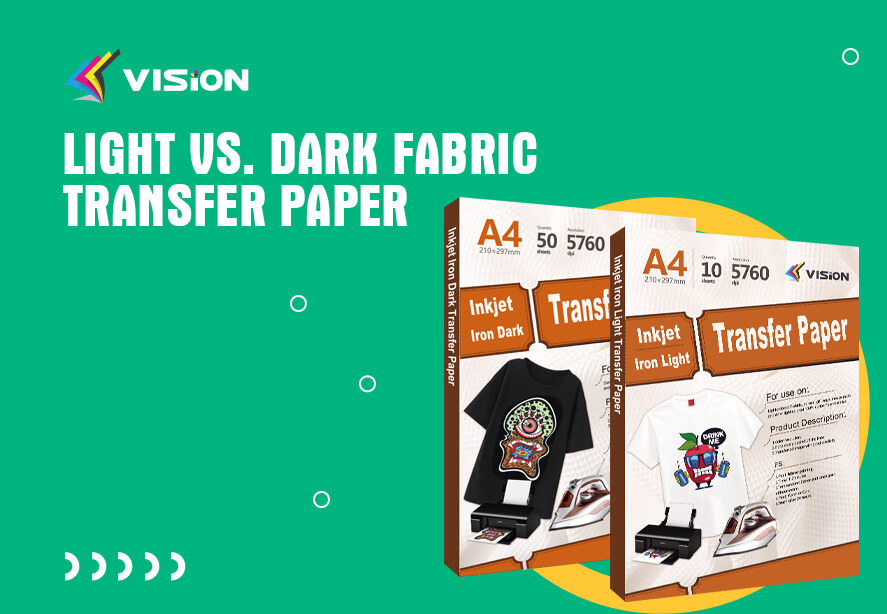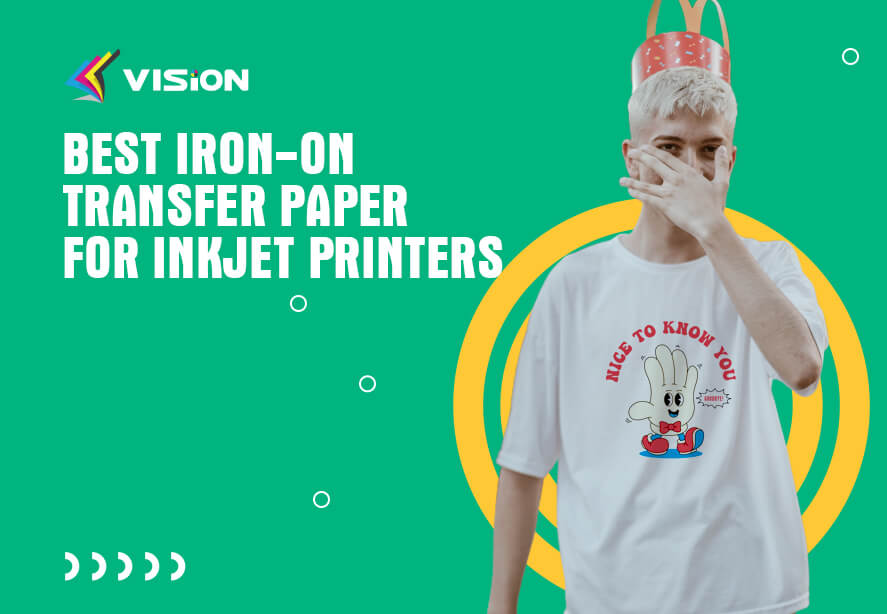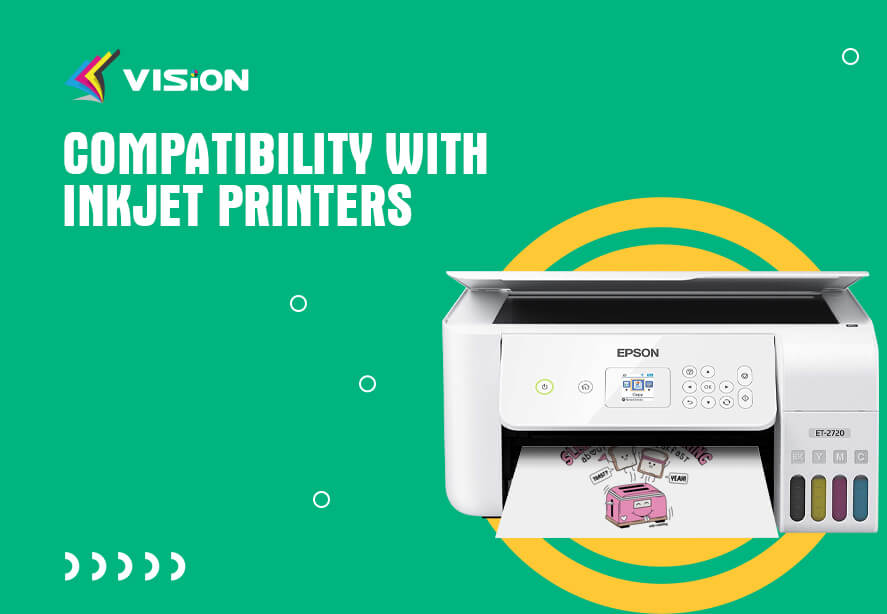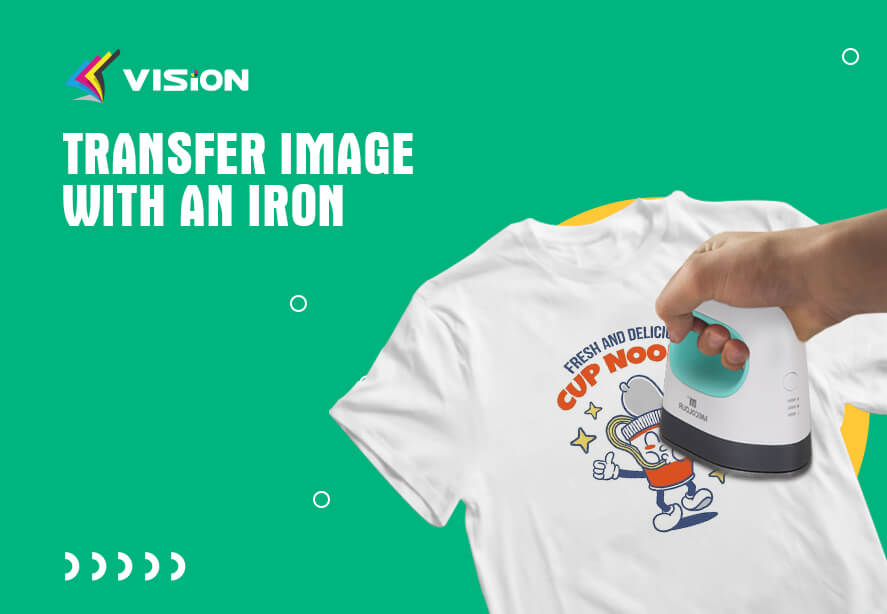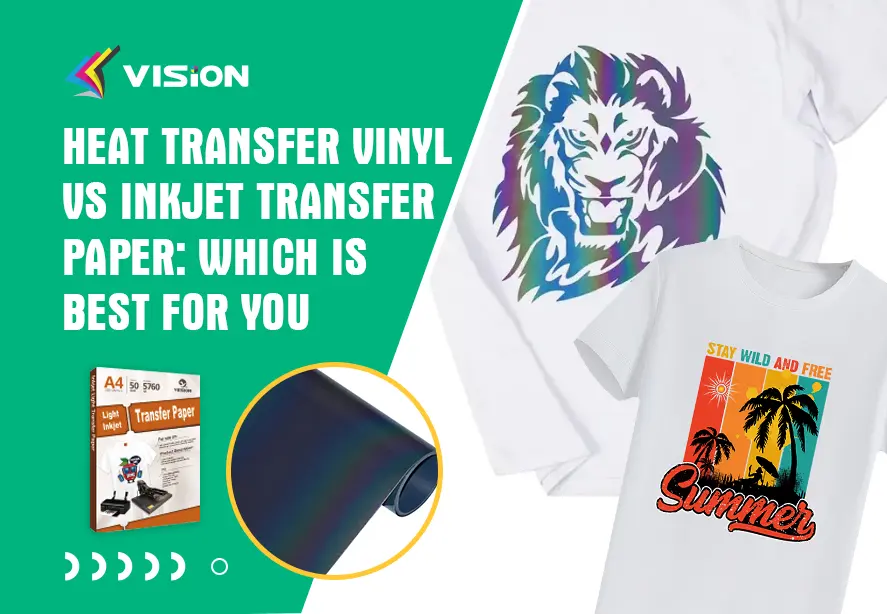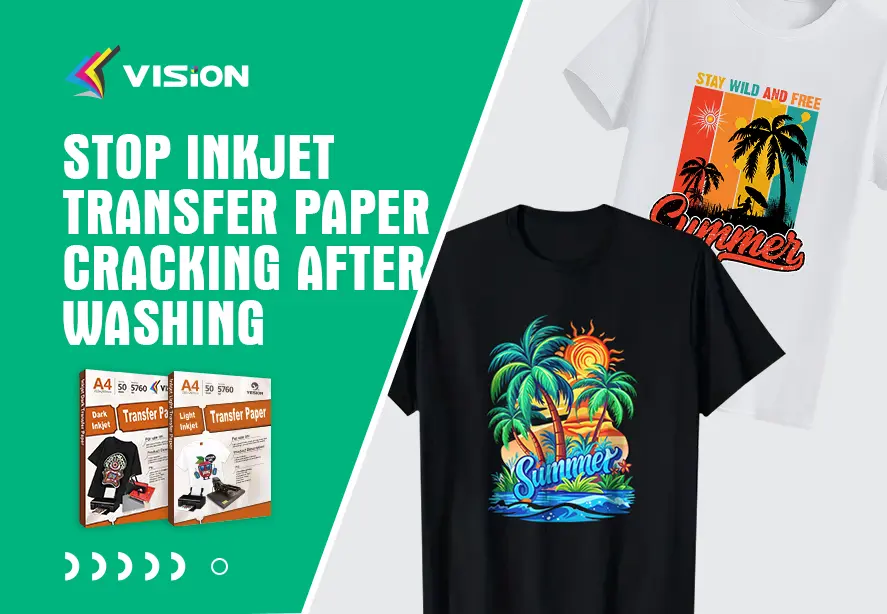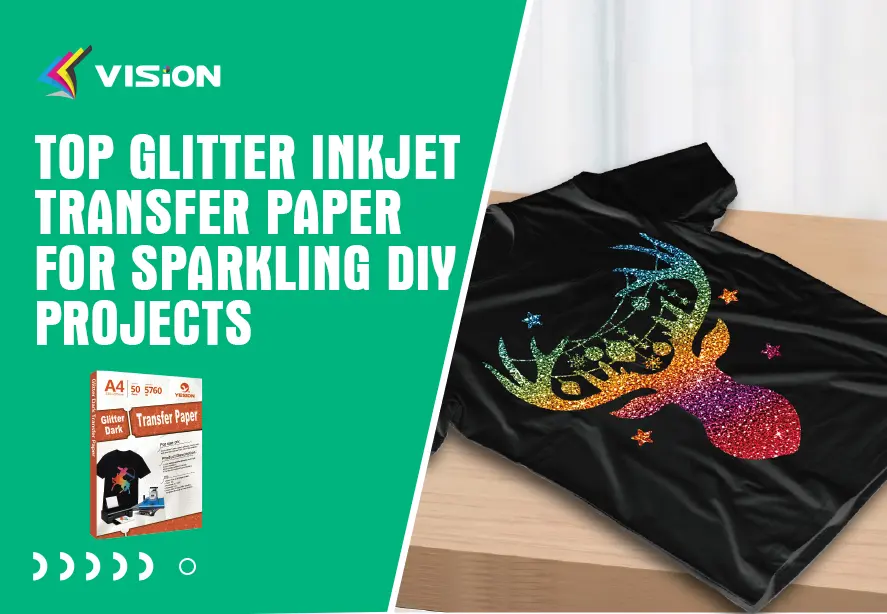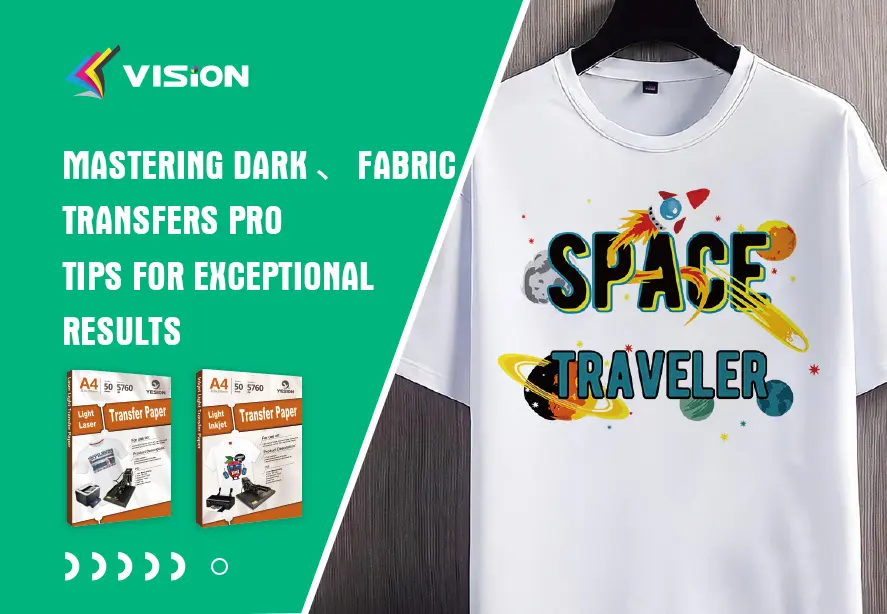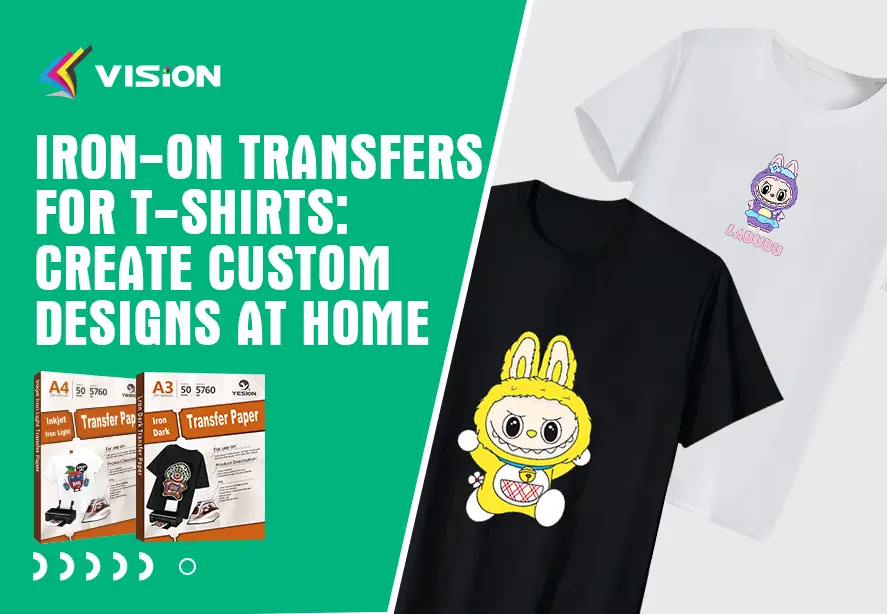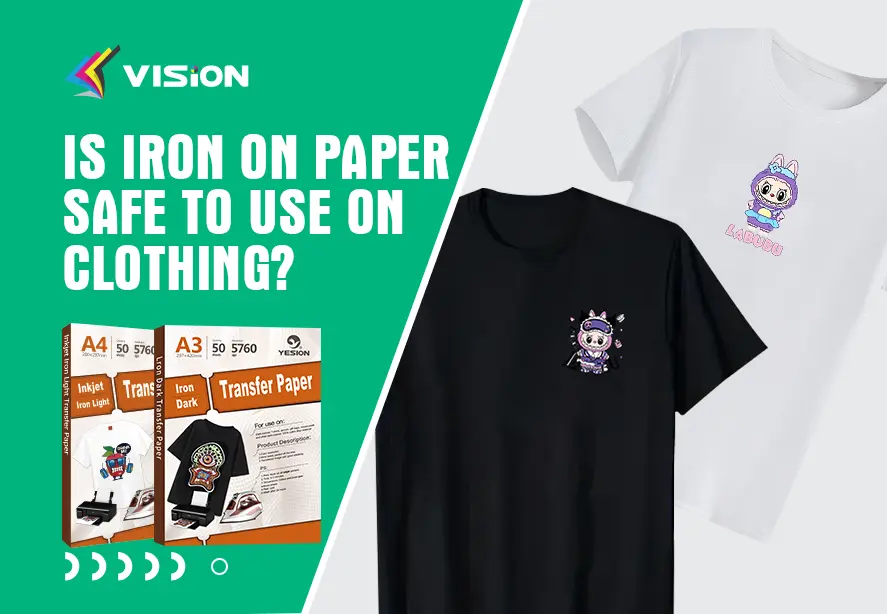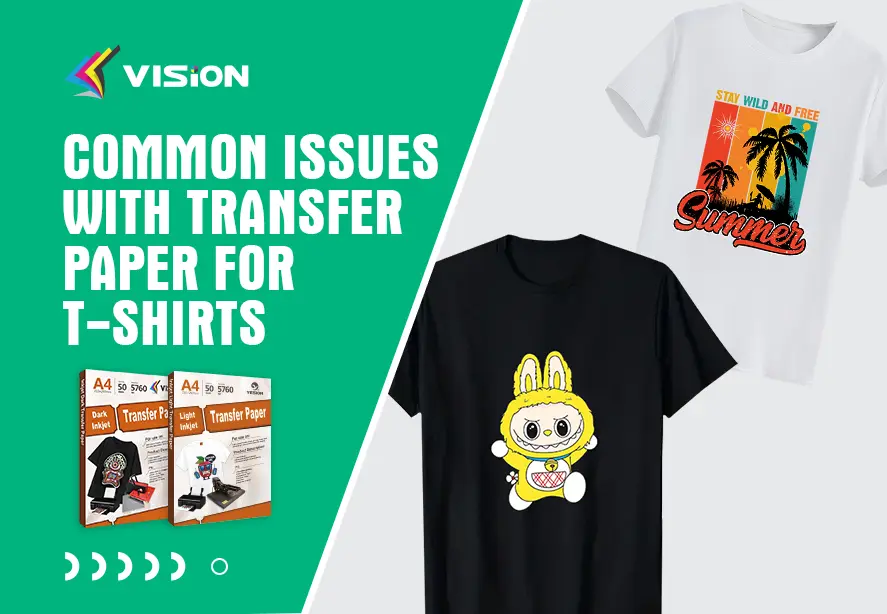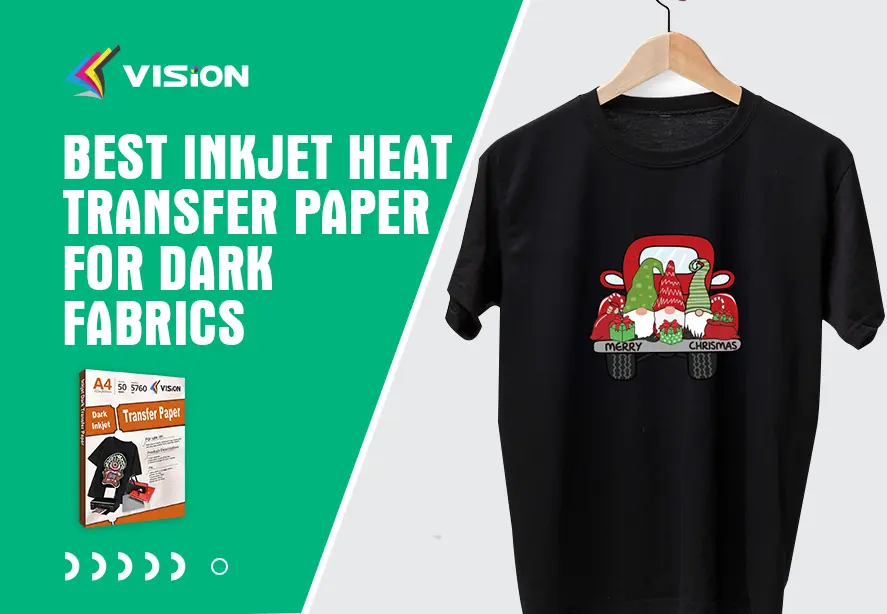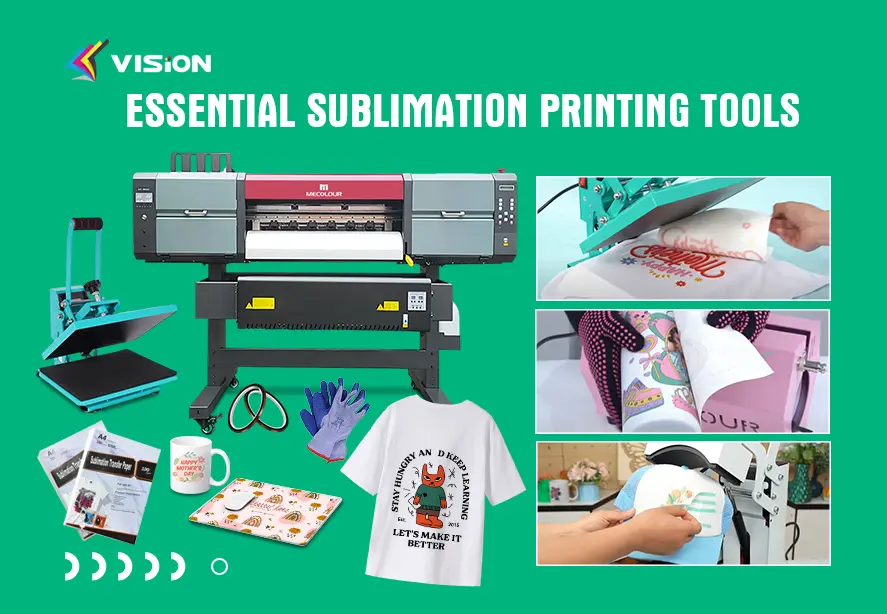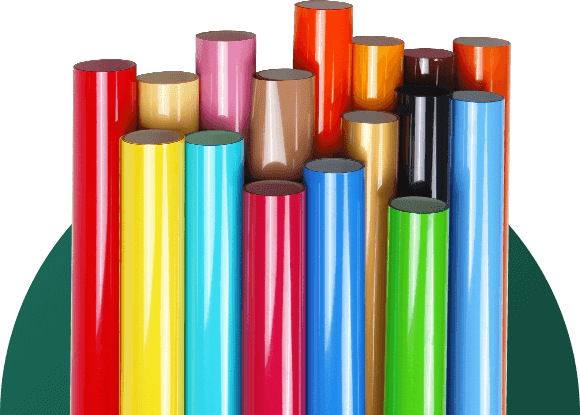
Blog
Best Iron-On Transfer Paper for Inkjet Printers
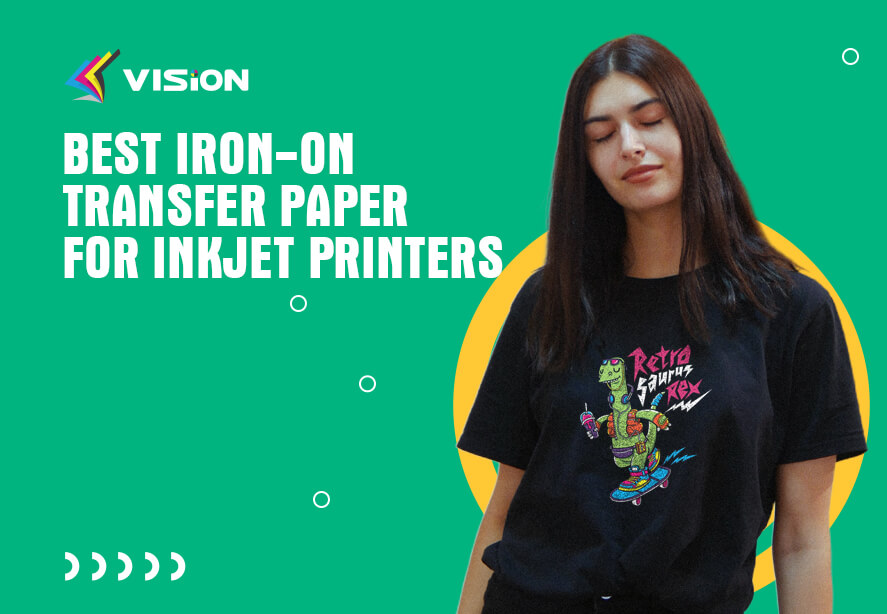
If you’re someone who loves to express their creativity through custom designs and personalized apparel, then iron-on transfer paper is a must-have tool for you. This versatile product allows you to print your designs on a special paper and transfer them onto various fabrics using heat. In this article, we will guide you through the world of iron-on transfer paper, helping you choose the best option for your needs and providing useful tips for a successful transfer.
What is iron-on transfer paper?
Iron-on transfer paper, also known as heat transfer paper, is a type of specialty paper coated with a polymer film on one side. It is designed to transfer printed images or designs onto fabrics through the application of heat and pressure. The paper acts as a carrier for the ink, allowing it to adhere to the fabric when heated.
Types of iron-on transfer paper: Light vs. dark fabric transfer paper
Iron-on transfer papers are available in two main variants: light fabric transfer paper and dark fabric transfer paper. The primary difference between them lies in the color of the fabric you intend to transfer the design onto.
Light fabric iron on transfer paper is suitable for use on light-colored fabrics, such as white or pastel shades. It is designed to provide vibrant and opaque prints that stand out on lighter backgrounds.
Dark fabric iron on transfer paper is specially formulated to work on dark or colored fabrics. It includes an additional layer of white backing, which ensures that the colors of the design appear vividly on darker backgrounds.
Key considerations when selecting transfer paper
When choosing the right iron-on transfer paper, there are several factors you should consider to ensure optimal results:
Compatibility with inkjet printers: Check if the transfer paper is compatible with your inkjet printer. Some papers may be specifically designed for certain printer models or ink types.
Quality of print results: Look for transfer papers that offer high-quality prints with sharp details and vibrant colors. The paper should be able to capture and retain the intricacies of your design.
Durability and washability: Consider the longevity of the transfer prints and their ability to withstand repeated washing and drying. A durable transfer paper ensures that your creations last longer.
Exploring one of the best Iron-On Transfer Papers
Let’s focus on one of the top manufacturers in the digital transfer paper market: VISION.
VISION is a well-known Chinese manufacturer known for producing high-quality transfer paper. With a solid reputation in the industry, they offer reliable products that consistently deliver excellent results.
Notable features: VISION’s transfer paper is designed for use with inkjet printers, providing compatibility and ease of use. It offers quick-drying properties, ensuring smudge-free prints and preventing ink bleeding. The paper’s superior adhesion promotes seamless transfers without compromising the quality of the design.
Benefits and advantages for users: VISION’s transfer paper guarantees vibrant and long-lasting prints on various fabrics. It allows for easy customization of clothing, bags, and other fabric items. The paper’s versatility enables both beginners and experienced crafters to achieve professional-looking results with ease.
How to Choose the Right Iron-On Transfer Paper?
Selecting the best iron-on transfer paper involves assessing your specific needs andconsidering various factors. Here’s a step-by-step guide to help you make an informed decision:
Assessing your specific needs
Fabric type and color considerations: Determine the type and color of the fabric you’ll be working with. Ensure that the transfer paper you choose is compatible with the fabric material and provides optimal results on the desired color background.
Project requirements and complexity: Consider the complexity of your design and the specific requirements of your project. Some transfer papers are better suited for intricate designs or detailed artwork, while others work well for simpler designs or text-based prints.
Compatibility with inkjet printers
Printer specifications and requirements: Check if the transfer paper is compatible with your inkjet printer. Look for any specific printer model requirements or recommendations provided by the manufacturer.
Ink compatibility and quality: Ensure that the transfer paper is designed for use with inkjet printers and supports the type of ink you’ll be using. Consider the quality of the ink and its ability to produce vibrant colors and sharp details.
Durability and washability
Longevity of transfer prints: Look for transfer papers that offer durability and longevity. High-quality papers should resist fading, cracking, and peeling over time, ensuring that your designs remain intact for an extended period.
Resistance to fading and cracking: Check if the transfer prints can withstand frequent washing and drying without losing their vibrancy or deteriorating. Look for papers that provide excellent washability and maintain their integrity even after multiple cycles.
Cost and value for money
Price comparison among top brands: Compare the prices of different iron-on transfer papers while considering their features and benefits. Keep in mind that the cheapest option may not always provide the best quality, so aim for a balance between affordability and value.
Balancing quality and affordability: Consider the overall value for money offered by the transfer paper. Look for a product that meets your requirements in terms of quality, durability, and ease of use, while also fitting within your budget.
Tips for Using Iron-On Transfer Paper
Click Comprehensive Guide to Iron-on Paper for Shirts to read more details, To ensure successful results with your iron-on transfer paper, follow these useful tips:
How To Use Iron-On Transfer Paper For DIY Custom T-Shirts?
Preparing the design and artwork
Choosing or creating the design: Select or create a design that suits your preferences and project requirements. Ensure that the design is compatible with the size and dimensions of the transfer paper.
Properly sizing and scaling the image: Adjust the size of the design to fit the intended placement on the fabric. Use graphic editing software or printer settings to scale the image accordingly.
Printing and transferring the design
Printer settings and recommendations: Set your printer to the recommended settings provided by the transfer paper manufacturer. Pay attention to parameters such as paper type, print quality, and color saturation for optimal results.
Step-by-step transfer process: Follow the instructions provided with the transfer paper for the transfer process. This typically involves printing the design on the paper, trimming the excess paper, and applying heat and pressure to transfer the design onto the fabric.
Finishing touches and aftercare
Removing transfer paper backing: Once the transfer is complete and the fabric has cooled down, carefully remove the backing paper according to the manufacturer’s instructions. Take care not to damage or distort the transferred design.
Caring for the finished product: Follow the recommended care instructions for the fabric and transferred design. Wash and dry the garment or fabric item according to the specified guidelines to maintain the longevity of the transfer print.
Frequently Asked Questions
When using iron-on transfer paper, some common mistakes to avoid include: Incorrect printer settings: Ensure that you select the appropriate printer settings for the transfer paper, such as paper type and print quality. Insufficient heat and pressure: Follow the recommended heat and pressure settings during the transfer process to ensure proper adhesion of the design to the fabric. Improper sizing and scaling: Make sure to properly size and scale your design to fit the intended placement on the fabric. Avoid stretching or distorting the image during printing. Neglecting proper aftercare: Follow the recommended care instructions for the transferred fabric item, including washing and drying guidelines, to maintain the quality and longevity of the transfer print.


